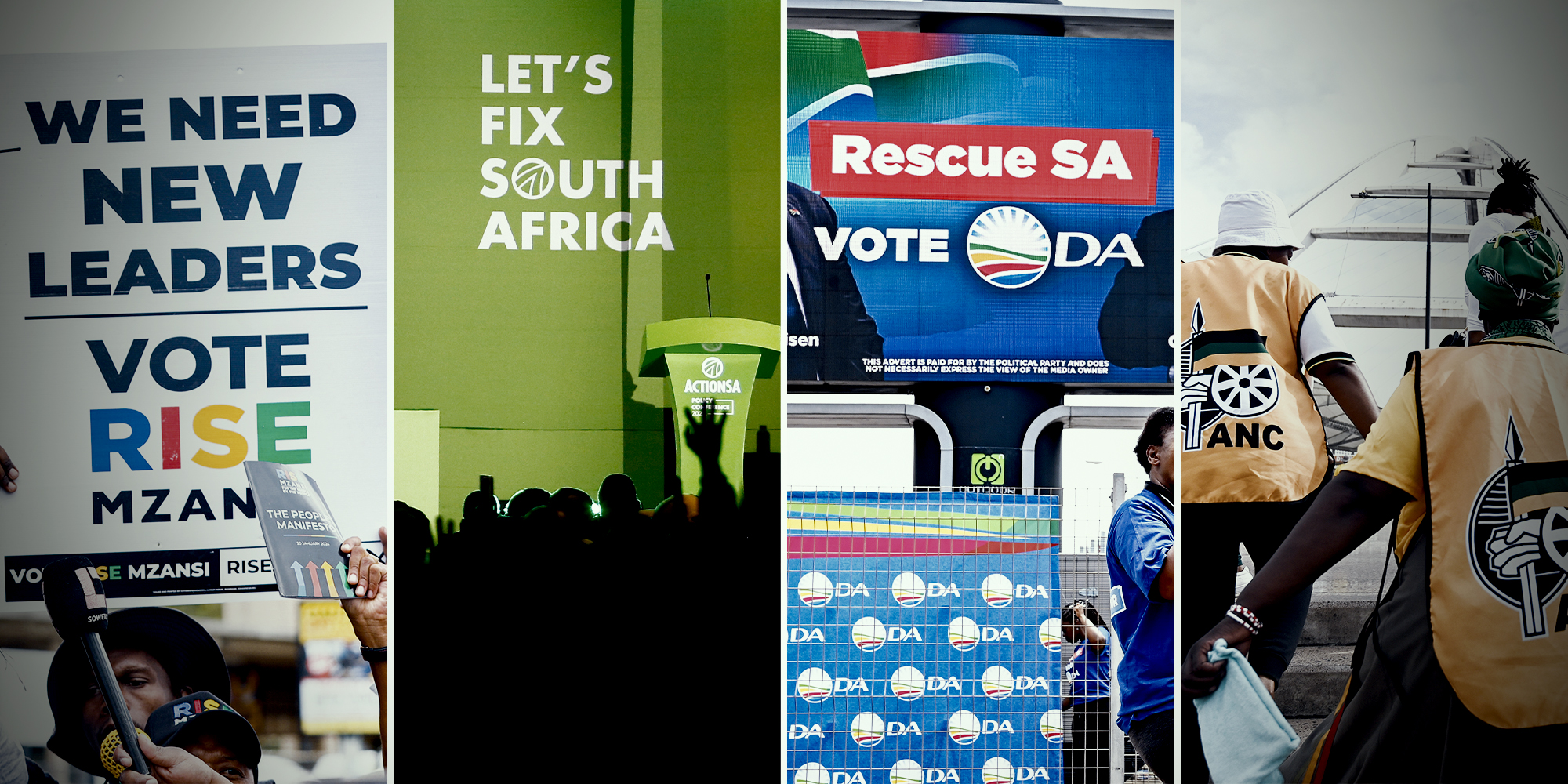Newer political parties are the flavour of the moment for funders as the elections approach.
This is the takeaway from the latest tranche of political party funding disclosures released by the Independent Electoral Commission (IEC) on Thursday.
Cumulatively, three parties established less than four years ago – Rise Mzansi, ActionSA and Build One South Africa (Bosa) – raked in close to R40-million in donations from 1 October to 31 December 2023.
Of these, the biggest winner by some distance was Songezo Zibi’s Rise Mzansi, which attracted some R16.7-million despite being currently untested electorally. The lion’s share of this funding came from a familiar figure within the South African political funding ecosystem: Rebecca Oppenheimer, one of the heirs to the family mining fortune, who together with her siblings and mother has been a major player in the funding of opposition parties. Oppenheimer gave Zibi’s outfit the maximum permitted donation within a financial year – R15-million.
Sister Victoria Freudenheim once again chose to boost the books of Herman Mashaba’s ActionSA, contributing R7,486,200. With her was ActionSA’s funder-in-chief from the start, online gambling mogul Martin Moshal, donating R5-million. A number of other smaller donations brought ActionSA’s haul during this period to R13,912,450.
Moshal again pops up in the relevant financial disclosures for Mmusi Maimane’s Bosa (R2-million), with another Oppenheimer scion, Jessica Slack Jell (R6-million).
Jell’s mother Mary Slack previously gave Bosa R5-million.
These latest funding records confirm a previously noted pattern: that a stunningly small pool of wealthy individuals, with Moshal and the Oppenheimers at the centre, keep the financial cogs of the South African political system turning.
That is, of course, if the funding disclosures can be relied upon. Unsurprisingly, the Economic Freedom Fighters (EFF) once again did not declare a single donation surpassing the minimum R100,000 threshold over the October-December period.
This is despite the fact that at least twice within the last seven months, the Fighters have hired stadiums for rallies.
EFF leader Julius Malema has previously claimed that the money for this came from the pre-election funding allocation to political parties from the National Treasury, telling a press briefing in August 2023 that the party had received R35-million more than it was expecting.
ActionSA questions ANC funding
The EFF is not the only party whose financial status is raising eyebrows.
ActionSA released a statement after the latest disclosure publications questioning how the ANC was able to settle a major historical debt on the basis of its declared donations.
ActionSA pointed out that in December 2023, the ANC announced that it had settled a R102-million debt to Ezulweni Investments – without providing details on how this was accomplished.
In the latest funding figures, the ANC has declared just R10-million in donations stemming from its own investment vehicle, the Chancellor House Trust.
It doesn’t add up, ActionSA charges.
Mashaba’s party says that if Ezulweni Investments had discounted the debt, this would have had to have been registered as a donation in kind – which it was not.
“The IEC cannot continue to turn a blind eye to [the] obvious fact that the ANC has settled a debt that it cannot possibly have afforded in terms of its donation disclosures,” ActionSA stated.
In January, ANC treasurer-general Gwen Ramokgopa said the party’s finances had stabilised thanks to membership fees, small individual donations and her belt-tightening measures.
ANC, DA left in donors’ dust
The ANC’s failure to bring in a single significant external donation over this period – again, if the disclosures are to be trusted – is in keeping with a longer-term trend which has seen the party seemingly struggle to attract much funding from the outside.
The DA, however, experienced a precipitous drop in donations over the relevant reporting period – registering its lowest quantum of funding since the Political Party Funding Act was promulgated, at just a little over R2.6-million.
Of this, R1-million came from the Artemis group, whose director Charles Liasides has previously been a DA donor in his personal capacity.
A further donation of just under R1-million was received from Beacon Rock Ltd, which appears to be the company founded by former Xstrata mining boss – and former UK Conservative Party treasurer – Mick Davis.
It should be noted, however, that some of the DA’s regular donors – including members of the Oppenheimer family – have likely already exceeded the maximum cumulative donation of R15-million permissible within a single financial year.
But election campaigning is an expensive business, meaning that the ability to attract funds at this particular juncture is of paramount importance.
Otherwise, rich politicians themselves end up forking out for their own parties – as we have seen in the past from both Herman Mashaba and Cyril Ramaphosa. On this occasion, it was the Patriotic Alliance’s founders Kenny Kunene and Gayton McKenzie dipping into their own pockets to support their party. DM





